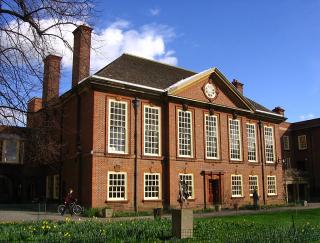I have been thinking about how to incorporate the general ideas from this post into the revised and clarified version of my second chapter, upon which I am now working. It seems that there are three axes across which environmental problems can be assessed: predictability, intentionality, and desirability. Of these, the third is most likely to have different values for different actors.
The mine tailings example is certainly intentional, for it is an inescapable and obvious product of mining activity. The predictability score depends on the status of knowledge about the health and ecological consequences of particular tailings at the time when they were released into the environment. Here, there is also a discussion to be had about the extent to which an actor engaged in something that could well have ecological or health consequences is morally obligated to investigate what those may be. There are also questions about whether private actors are merely obliged to follow the law, or whether they need to act upon moral considerations with which the law has not explicitly saddled them.
On the matter of desirability, the range includes possibilities of utility gain, indifference, and loss. The mining company probably has an indifferent or unfavourable view of tailings: if they could be avoided for moderate cost, they would be. This is certainly true now that the consequences of certain tailings are known and legal and moral obligations on the part of such companies are fairly well entrenched. A more interesting possibility is environmental change that increases the utility of some, while diminishing that of others. This could happen both with intentional acts (say, building a dam) or unintentional ones (the unintended introduction of a species into a new area).
In any event, the new plan is to boil the introductory portion of the chapter down until it is only about 1000 words long. Then, I will write 2500 words each on the case studies, and 1000 words in concluding comments. Most of the existing commentary will be migrated into the case study sections. The best way to do all of this is probably to re-write from scratch, then import and vital elements and citations from the old version. A similar chapter model can be adopted for the third and fourth chapters and, since most of the research being done covers all three, they should prove reasonably easy to write once it is done.
[Update: 3 March 2007] I now feel confident that the version of the chapter to be submitted tomorrow, four days late, will be enormously superior to what could have been submitted on time. This owes much to the new books I got at the Geography and Environment Library. Those with restricted wiki access can have a look at the emerging draft.


